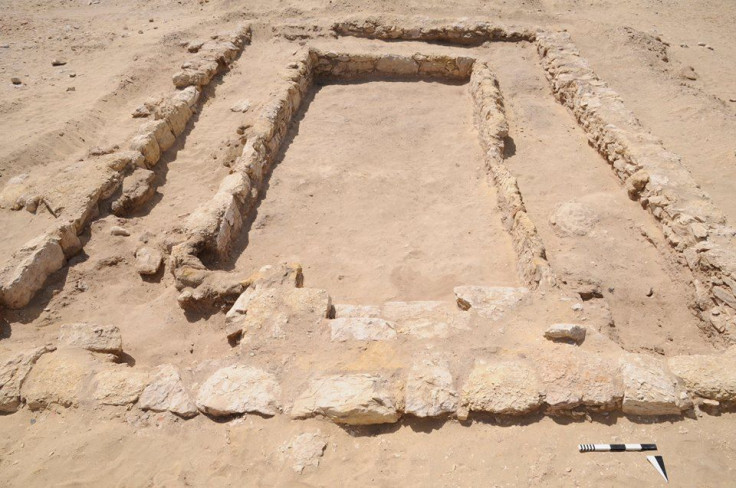Ancient Greek Gymnasium From 2,300 Years Ago Discovered In Egypt

Archaeologists in Egypt have unearthed an ancient gymnasium that dates back to the third century B.C., which falls in the ancient Hellenistic or Greek period. The discovery was made by a joint team of German and Egyptian archaeologists at Watfa in Fayoum province, about 50 miles southwest of Cairo.
The ancient gymnasium dates back about 2,300 years, according to a Facebook post by Egypt’s Ministry of Antiquities. The gym was discovered at Watfa in the ancient village of Philoteris, the post added. The site was founded by King Ptolemy II in the 3rd Century BC.
According to Ayman Ashmawi, head of the Ancient Egyptian Antiquities Sector, gyms were once designed as private places for upper-class citizens to engage in Greek learning. Reading and writing lessons, philosophical discussion and sports were also held there.
She also added the gymnasium had a large hall where all the town meetings and classes were conducted and this chamber was decorated with large statues. The team also found a dining hall and a courtyard next to the large hall. They also discovered a 200-meter-long racetrack, which is where the gymnasium part starts making sense, and gardens around the whole complex. The team described the area as having an ideal layout for a center of Greek learning.
The archeological mission was headed by Professor Cornelia Römer with the German Archaeological Institute (DAI), and he made the discovery as part of ongoing excavations at the site.
According to the post, prof. Römer said the discovery clearly shows the impact of Greek life in Egypt, not only in Alexandria, but also in the countryside. Römer also added these gyms were centers of learning and culture for the entire kingdom. All wealthy young men gathered there to learn the Greek language.
This discovery comes as the latest in a string of fascinating archaeological finds in Egypt. Last week, International Business Times reported a team of researchers discovered a mysterious chamber inside Egypt’s Great Pyramid of Giza.
Other gymnasiums have been uncovered in locations around Egypt in Athens, Pergamon and Miletus in Asia Minor and Pompei in Italy.
The gymnasium found in Egypt was smaller than the ones in other places. But the team observed they shared several similarities in design and decoration.
According to Dr. Römer, Alexander the Great was responsible for Egypt getting inducted into the Hellenistic world, with thousands of Greek-speaking settlers flocking to the area under the Ptolemaic empire. This created the need for the wealthy to know the language to ensure smoother communication. Ít also led to the formation of new settlements in the Delta and the Fayum.
In these villages, Egyptians and the Greek lived together, thus creating settlements with both Egyptian temples and Greek sanctuaries. The post also said these villages had contained public baths – a feature common in Greek societies.
The gyms were also influence of the Greek immigrants and were further extensions of the Hellenistic culture. Inscriptions and papyri reveal these features were found in the countryside during the Ptolemaic period.
In the beginning of Watfa’s existence, it had about 1200 inhabitants, according to the experts – two thirds of which were Egyptian, and one third Greek-speaking settlers.
© Copyright IBTimes 2025. All rights reserved.





















